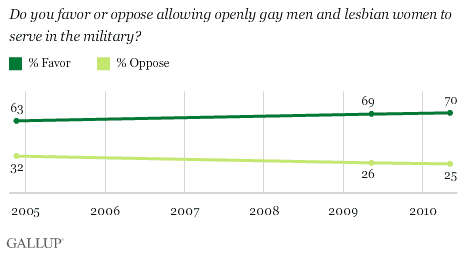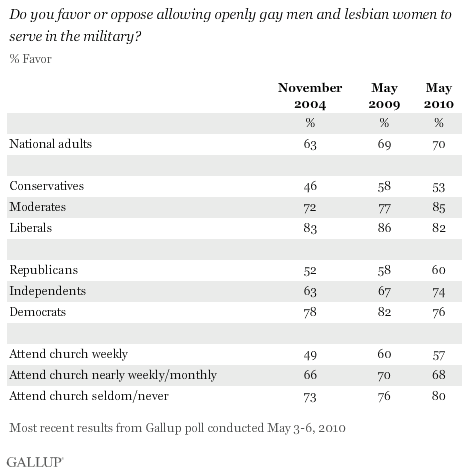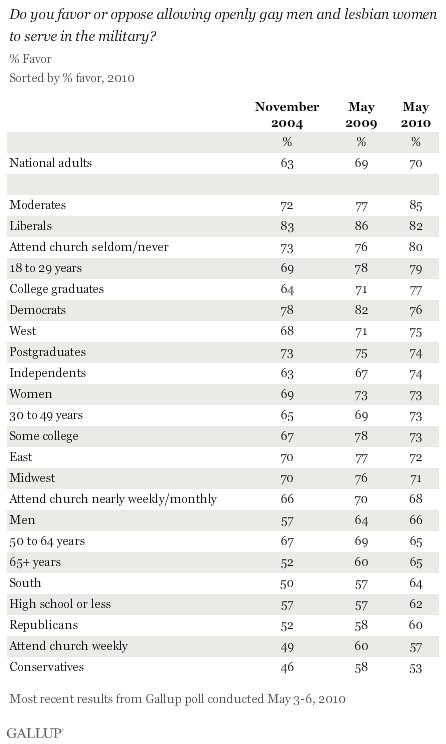WASHINGTON, D.C. -- A large majority of Americans (70%) continue to favor allowing openly gay men and women to serve in the military, with continued majority support from every key demographic subgroup.

The latest results are from a ���۴�ýpoll conducted May 3-6, 2010. They are particularly relevant in light of President Barack Obama's nomination Monday of U.S. Solicitor General Elena Kagan to the Supreme Court. Kagan has opposed the military's "Don't ask, don't tell" policy, in 2003 calling it "a moral injustice of the first order."
The Obama administration has repeatedly said it is committed to repealing "Don't ask, don't tell," and has made it more difficult to discharge service members under the policy, but last month the administration urged Congress not to move toward repeal until the Pentagon completes a formal review of the policy. Army Secretary John McHugh said Friday that the military is considering a way for service members to give their opinions on the policy before making a recommendation by the end of this year.
The public opinion environment does suggest widespread support for repealing the policy. The majority of Americans in all key demographic groups, including conservatives (53%), Republicans (60%), and weekly churchgoers (57%), say they favor allowing openly gay men and women to serve in the military. These views are , with all three conservative-leaning groups remaining more favorable toward openly gay service members than they were in 2004.

Support for allowing gay men and women to serve openly in the military is highest among moderates (85%), liberals (82%), those who seldom or never attend church (80%), and 18- to 29-year-olds (79%).
See more demographic groups and trend data on page 2.
Results are based on telephone interviews with 1,029 national adults, aged 18 and older, conducted May 3-6, 2010. For results based on the total sample of national adults, one can say with 95% confidence that the maximum margin of sampling error is ±4 percentage points.
Interviews are conducted with respondents on landline telephones (for respondents with a landline telephone) and cellular phones (for respondents who are cell phone only).
In addition to sampling error, question wording and practical difficulties in conducting surveys can introduce error or bias into the findings of public opinion polls.

